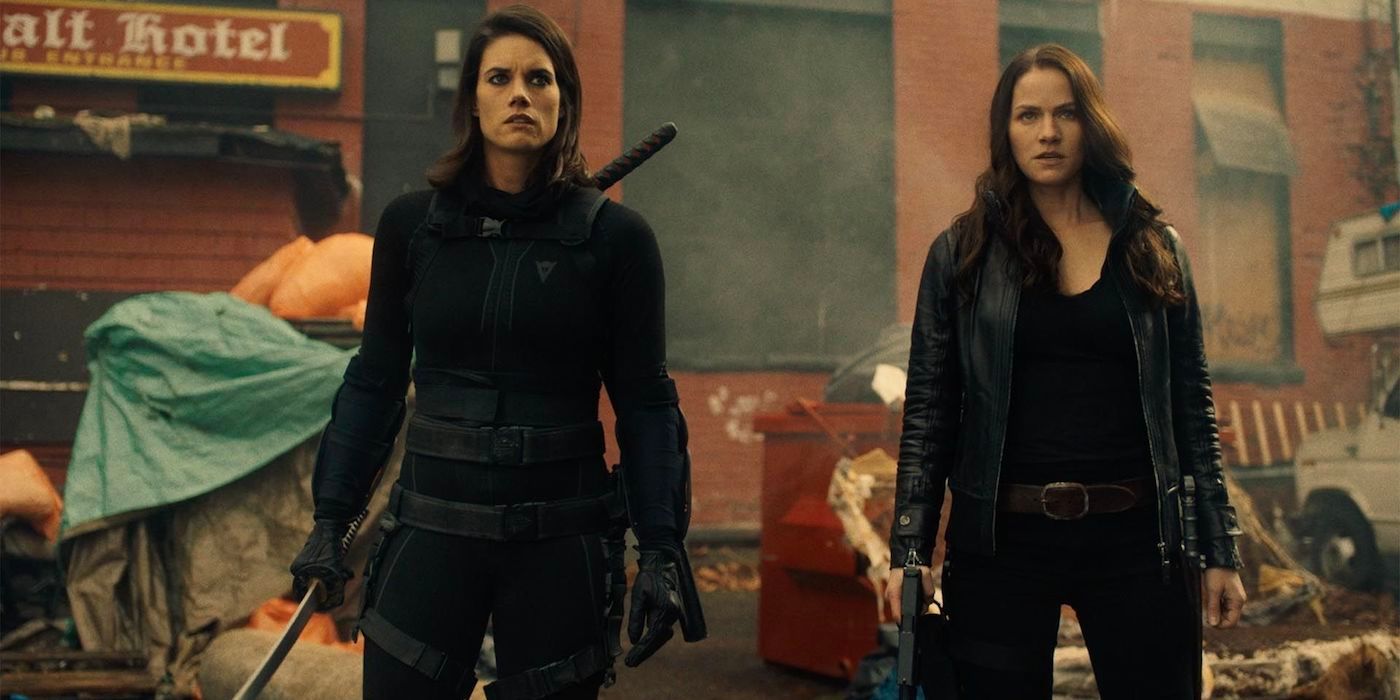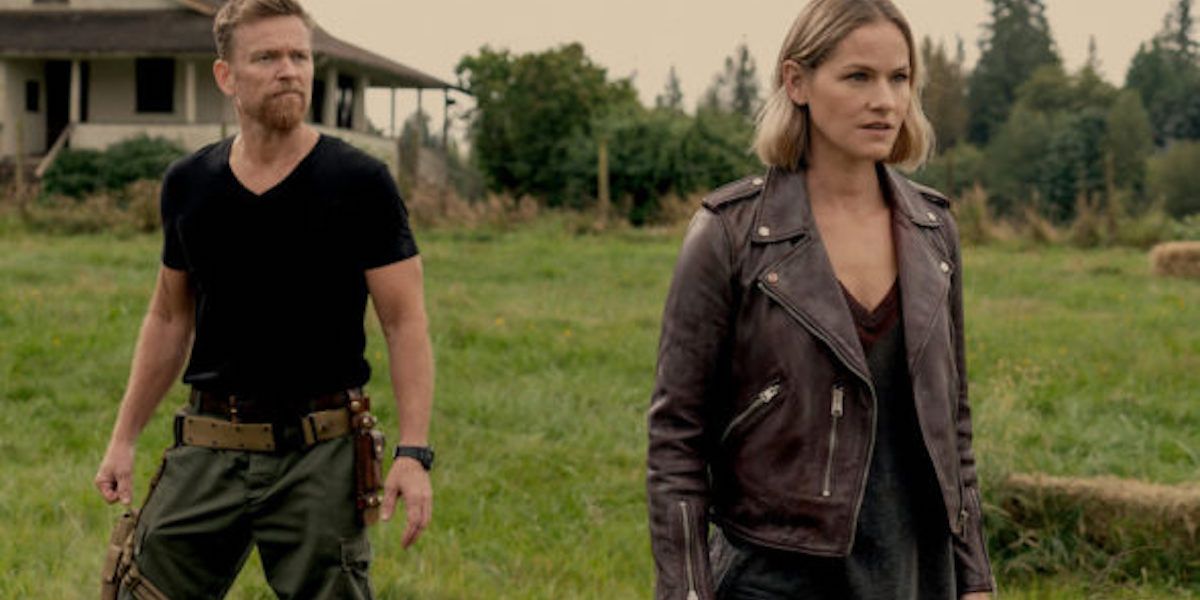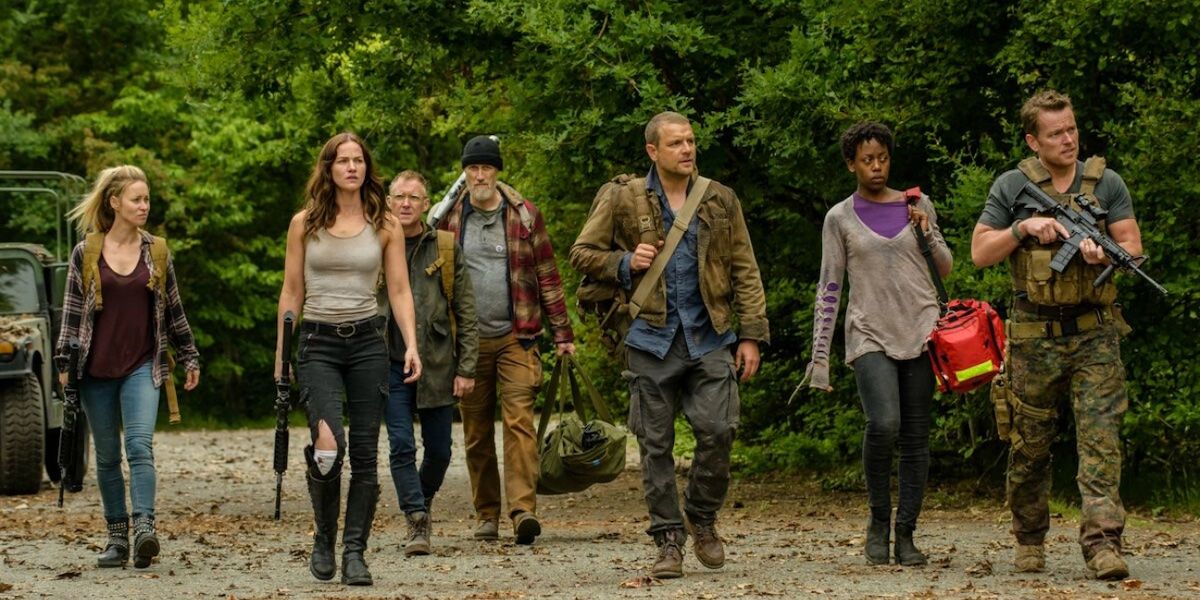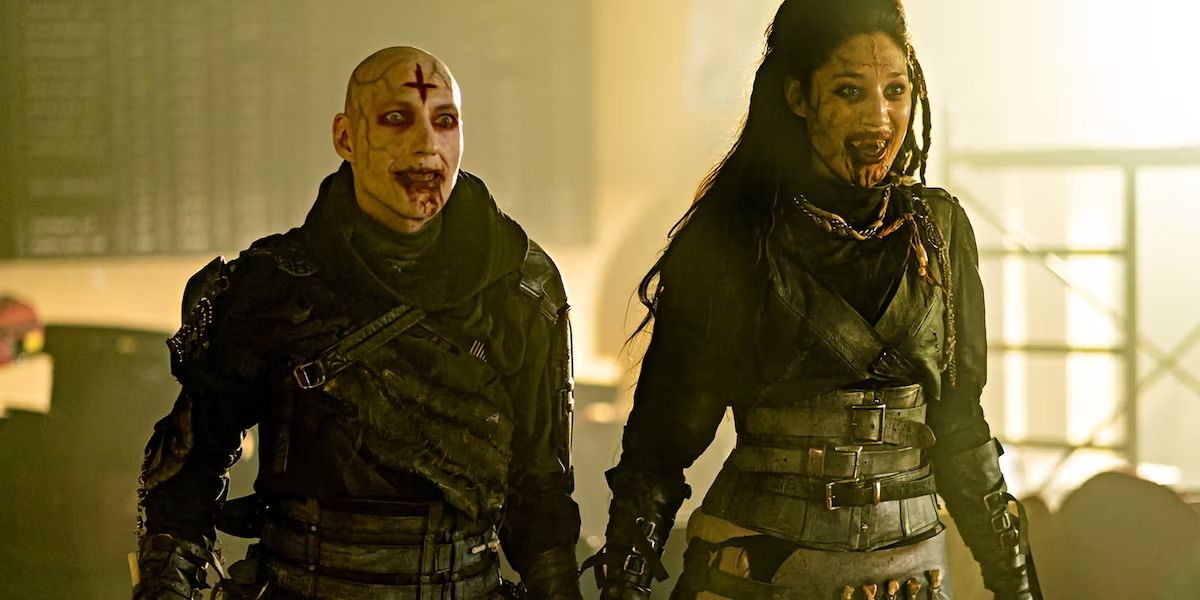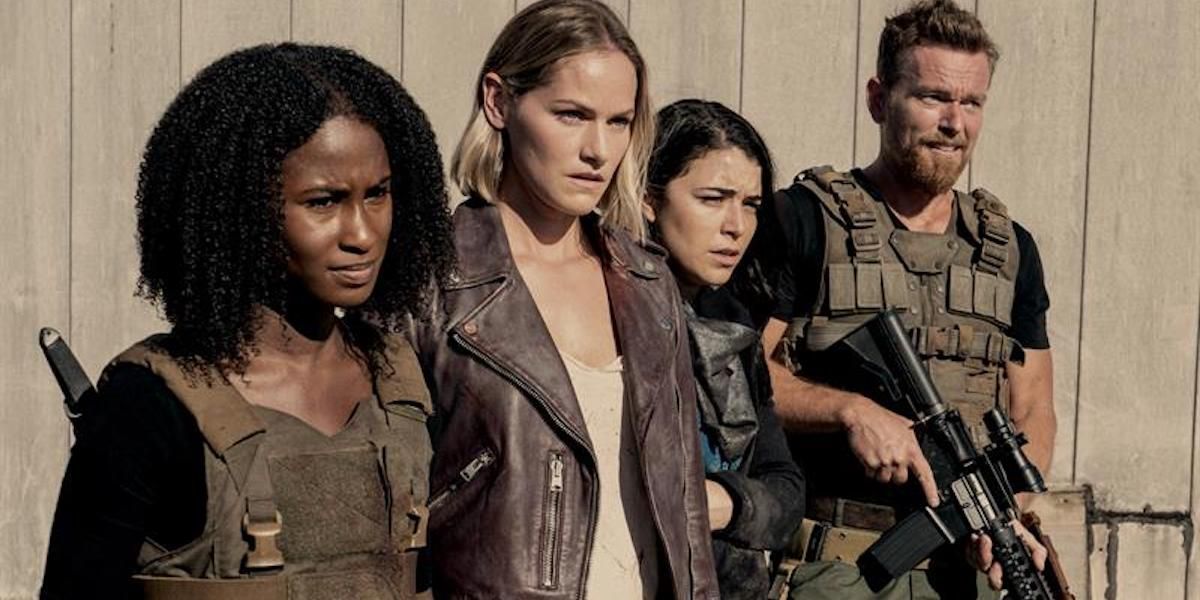In a world of countless streaming services littered with zombie shows, post-apocalyptic epics, and vampire-related dramas, trying to decide what show to binge next can get pretty overwhelming. While there's nothing wrong with watching The Office or Supernatural for the umpteenth time, it may be time to move on to something new and different, something a bit more unique. Well, if post-apocalyptic fantasy survival stories are your thing, if you're a fan of Bram Stoker's Dracula, and/or if you just need something new and bloody to watch, then Syfy's Van Helsing is the show for you!
Of course, we're not talking about the 2004 blockbuster starring Hugh Jackman (though that movie is a treasure and a delight), but rather the five-season fantasy horror series starring Kelly Overton as the titular Vanessa Van Helsing, the descendant of Dr. Abraham Van Helsing from Stoker's original novel. After the Yellowstone Caldera (the supervolcano beneath the national park) blows and the world is thrust into ashy darkness, the vampire apocalypse, known as "The Rising," begins as the undead conquer humanity. Our last hope? Vanessa, a woman who is somehow not only immune to the vampire virus but can also turn vampires back into human beings. If this sounds even remotely interesting to you, then keep reading and discover what makes Van Helsing unique among the rest...
Expert Worldbuilding
In the world of Van Helsing, the vampires are a lot more like zombies, but with actual brains (well, some of them). The show initially feels very "zombie apocalypse"-like with clans, groups, and factions of vampire hordes raging rampant around the city of Seattle, Van Helsing's original setting. If the premise seems very Walking Dead, it’s because on the surface it is, but it doesn’t stay that way long. As the series progresses, the heavily vampire-infested cities become a thing of the past, with our characters opting to explore the vast wildernesses of the Pacific Northwest and American West, going as far south as Denver, and eventually as far east as Washington D.C.
As the show goes on, we explore countless new places and ideas that make Van Helsing unique among other post-apocalyptic horrors. One such addition appears in Season 4, where human/vampire fight clubs are introduced, as outsiders on the East Coast are entertained at the expense of human and vampire lives alike. But that's not all, the series is also ripe with hidden government labs, which experimented on Vanessa when she was a young girl and play god with the vampire virus. We did say labs right? Plural? Because there are quite a few of them out there, which is odd since it's the apocalypse, but oh well, it manages to work!
Of course, this isn't even to mention the show's surprising shift into alternate dream-like dimensions, the fifth season's multi-episode trip to the past (exploring the origins of "the Dark One"), and Vanessa and company's trip to the netherworld to battle her sworn enemy, the vampire serial killer Sam (Christopher Heyerdahl). Van Helsing's commitment to expanding the world in whatever ways necessary to tell the most interesting story possible is pretty admirable, and always keeps us on our toes.
An Expansive Mythology
Unlike The Walking Dead or your standard zombie apocalypse series, Van Helsing has a dense mythology that reveals there’s more to this world than previously thought. As people learn the hard way that vampires are real (even if they act more like zombies or drug blood addicts at times), we soon discover that many of them have been around for a very long time, maybe centuries. Vanessa's original foils, Dmitri (Paul Johansson) and Julius (Aleks Paunovic), have lived as vampires for decades before the Rising and raised their own armies of the undead.
The series also delves into magic, prophecies, and dark Van Helsing family secrets that make for an interesting and engaging plot, with twists you'll never see coming. The first two seasons center around Vanessa discovering her origins and rescuing her daughter, only to morph into a series about defeating the "Four Elders" (mythical vampires with demonic powers), all in preparation for the final two seasons. These final two seasons (especially the last) center entirely around the rise/return of Dracula, completely re-imagined (and gender-bent) as "the Dark One," played by Tricia Helfer of Battlestar Galactica fame.
There are also some fascinating flashbacks and explorations into the histories of some of the show's most interesting characters such as Michael Eklund's Abraham Van Helsing or the vampiric serial killer Sam, who from a young age had been watched by the forces of evil. Similarly, the Van Helsing family book serves as a guide to the history of her family history of vampire slaying, very similar to the "Vampyre" book from Buffy the Vampire Slayer, just with more interdimensional charm. Just watch and you'll see!
Genre Swapping
Van Helsing is a really great binge for any fans of horror, sci-fi, fantasy, or any sort of post-apocalyptic stories largely because it shifts from being a survivalist horror show into a grand, time-traveling fantasy with high concepts and even higher stakes. If that sounds confusing, let us reassure you that while you're watching, it won't be. It'll all make sense as you go along. If we could smash the survivalist horror of The Walking Dead, the apocalyptic mythology of Supernatural, and the female-vampire slayer trope from Buffy the Vampire Slayer all into one series, then Van Helsing would be it.
It’s these gradual genre shifts that keep the show interesting for five seasons, each one a bit different from the last. While locations constantly shift and change, so do the vehicles in which the story is told, including the occasional shift in aspect ratio to make certain episodes feel a bit more self-contained (and cinematic). Don't misunderstand, we're not shifting from drama to comedy here, Van Helsing is an intense drama through and through, but the aspects of the series which grounded it in "realism" at the start slowly fade away as the world becomes more unhinged, moving the series into high-fantasy territory rather than strict survivalist horror.
Of course, certain episodes are scarier than others, such as the Season 2 episode "A Home," which sees the vampiric serial killer Sam terrorize a bunch of teens in an abandoned high school. The episode is terrifying and feels almost like something out of a twisted Stephen King novel. But not every genre-bending episode is horror-related. The penultimate third season episode "Christ Pose" actually takes the time to explore what it means to have faith during such a trying time as the vampire apocalypse, and how one man (Jeff Kober) has lived in solitude. While Van Helsing is no doubt a consistent show, its expanding mythology and occasional genre shifts keep it fresh.
Compelling Characters
No series would be great without a solid lead (or at least a solid supporting cast), and that's true of Van Helsing also. Kelly Overton's Vanessa Van Helsing is a powerhouse, a woman on a mission to find her daughter at all costs, and one who can (and will) survive just about anything to get there. As the world's last hope for survival against the vampire plague, Vanessa journeys from her role as a grieving mother to a folk hero, a source of inspiration for those she meets and hope for the future. Of course, Vanessa isn't on her own, her forever loyal Marine companion Axel (Jonathan Scarfe) stands by her side, the faithfully brave Mohammad (Trezzo Mahoro), and the formerly vampires-turned-human, Doc (Rukiya Bernard), Flesh (Vincent Gale), and Julius.
What's interesting about many of the formerly vampiric characters is that, much like the ensouled vampire Angel (David Boreanaz) from Buffy and Angel, they are completely separate people from their vampire counterparts. Immediately when Julius turns back to human, he's a completely different person, switching from being one of the worst characters on the show to one of the most lovable. Others, such as Flesh, who had eaten his children as a vampire, have a much harder time getting over their vampiric rage and guilt, working instead to pay their penance. These transitions make for some complex stories that could only be told in a series such as this.
It's this eclectic group of survivors who keep us watching Van Helsing through to the end, even when the cast begins to change in the fourth and fifth seasons. Much like in The Walking Dead, no character is safe, not even a Van Helsing, which only raises the stakes higher. We've mentioned the vampire serial killer Sam (whose story is fascinating and somewhat terrifying), but there are dozens of other characters, good and bad, who all have tragic pasts and hopeful dreams for the future. It's the heroes like Axel, Julius, Scarlett (Missy Peregrym), and Vanessa who make Van Helsing worth watching because we root for their survival, hoping beyond hope that they'll make it out of this hellscape alive.
If you're looking for a show to put your life in perspective, or maybe you just want some solid post-apocalyptic entertainment that has no right to be as good as it actually is, then Van Helsing is the show for you! It's great timing to start binging it too since the series' fifth and final season only ended last summer.

